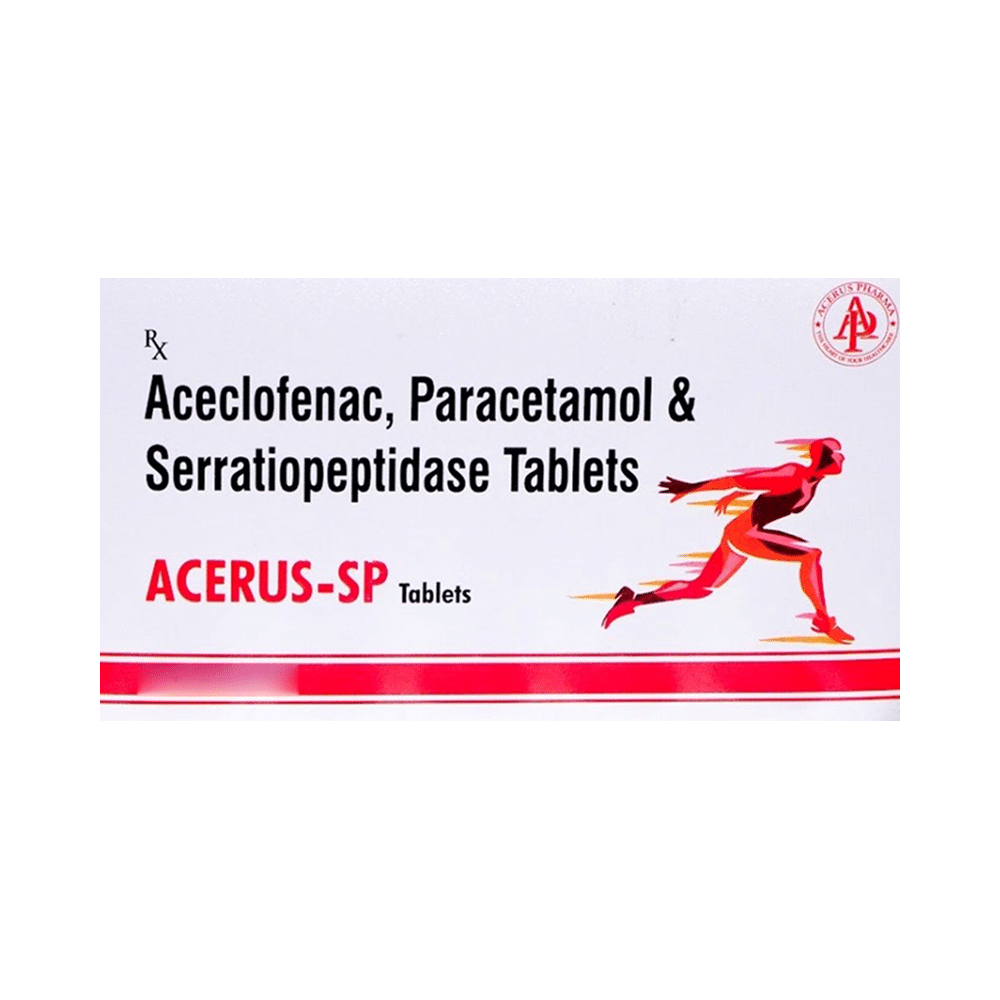
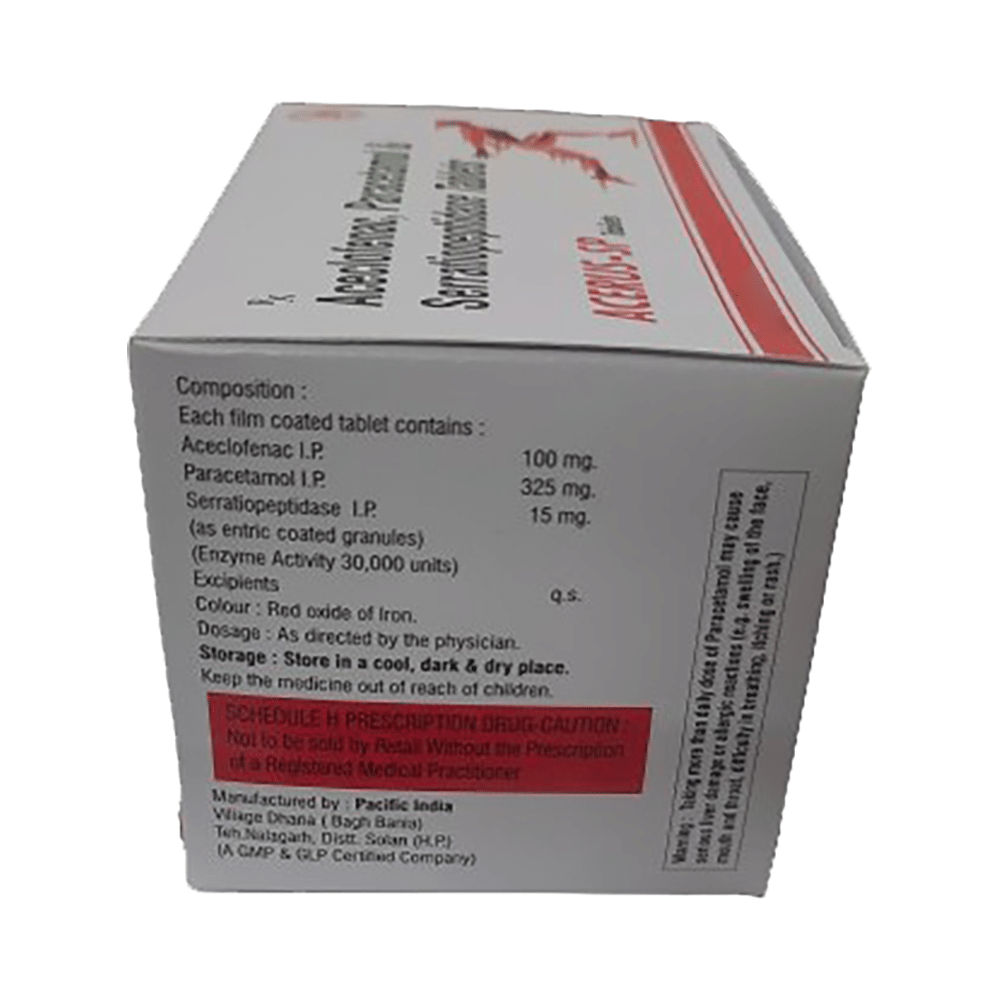
Acerus-SP Tablet
Manufacturer
Acerus Pharma
Salt Composition
Aceclofenac (100mg) + Paracetamol (325mg) + Serratiopeptidase (15mg)
Key Information
Short Description
Acerus-SP Tablet is a combination medicine used to relieve pain and swelling in various conditions like muscle pain, joint pain, and postoperative pain.
Dosage Form
Tablet
Introduction
Acerus-SP Tablet is a combination medicine used to relieve pain and swelling in various conditions like muscle pain, joint pain, and postoperative pain. It effectively alleviates pain and inflammation in conditions like rheumatoid arthritis, ankylosing spondylitis, and osteoarthritis.
Directions for Use
Take this medicine in the dose and duration as advised by your doctor. Swallow it as a whole. Do not chew, crush or break it. Acerus-SP Tablet is to be taken with food.
How it works
Acerus-SP Tablet is a combination of three medicines: Aceclofenac, Paracetamol and Serratiopeptidase. Aceclofenac is a non-steroidal anti-inflammatory drug (NSAID) and Paracetamol is an antipyretic (fever reducer). They work by blocking the release of certain chemical messengers in the brain that cause pain and fever. Serratiopeptidase is an enzyme which works by breaking down abnormal proteins at the site of inflammation and promotes healing.
Quick Tips
You have been prescribed this combination medicine for relieving pain and inflammation. Take it with food to avoid getting an upset stomach. It may cause dizziness and sleepiness. Do not drive or do anything that requires mental focus until you know how Acerus-SP Tablet affects you. Avoid consuming alcohol when taking Acerus-SP Tablet as it may cause excessive drowsiness and increase the risk of liver damage. Do not take it with any other medicine containing acetaminophen (drugs for pain/fever or cough-and-cold) without asking your doctor first.
Related Medicines
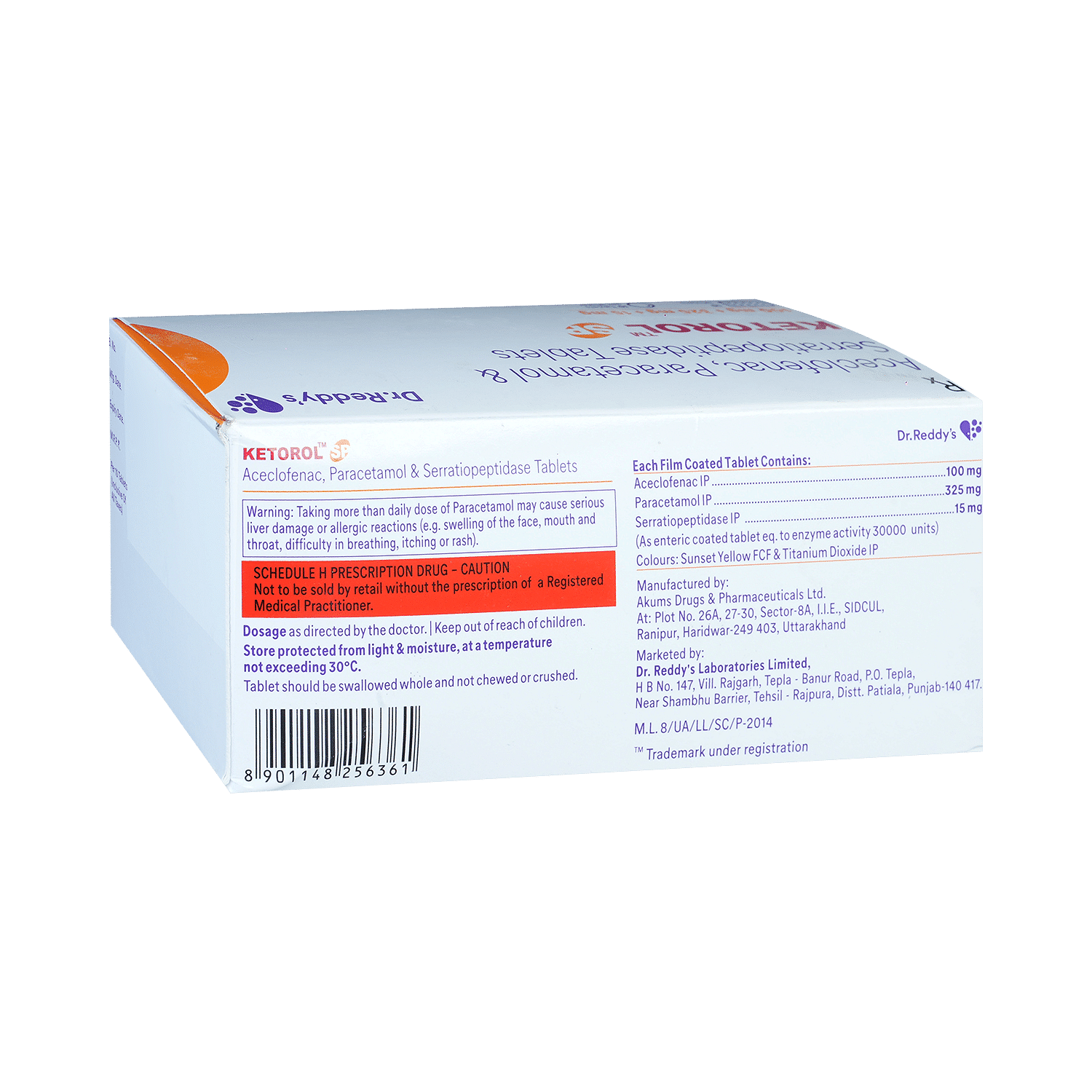
Ketorol SP Tablet
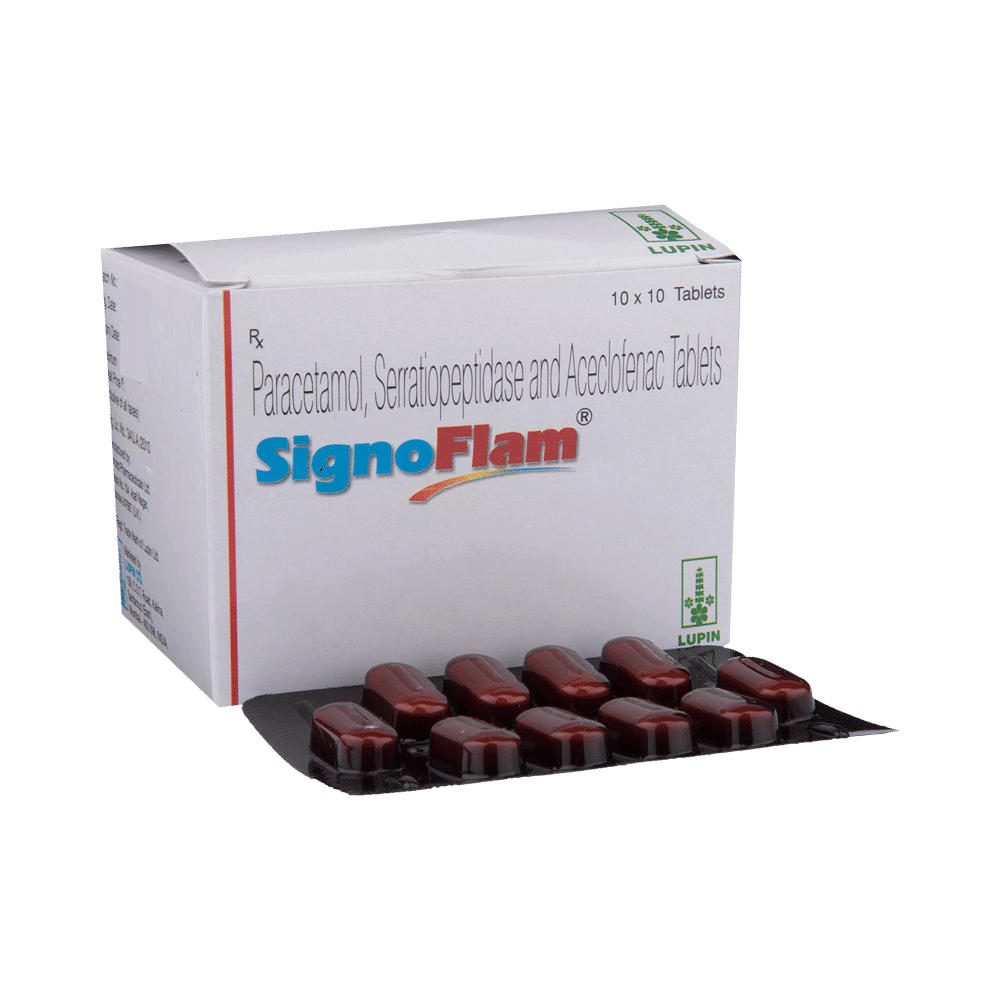
Signoflam Tablet
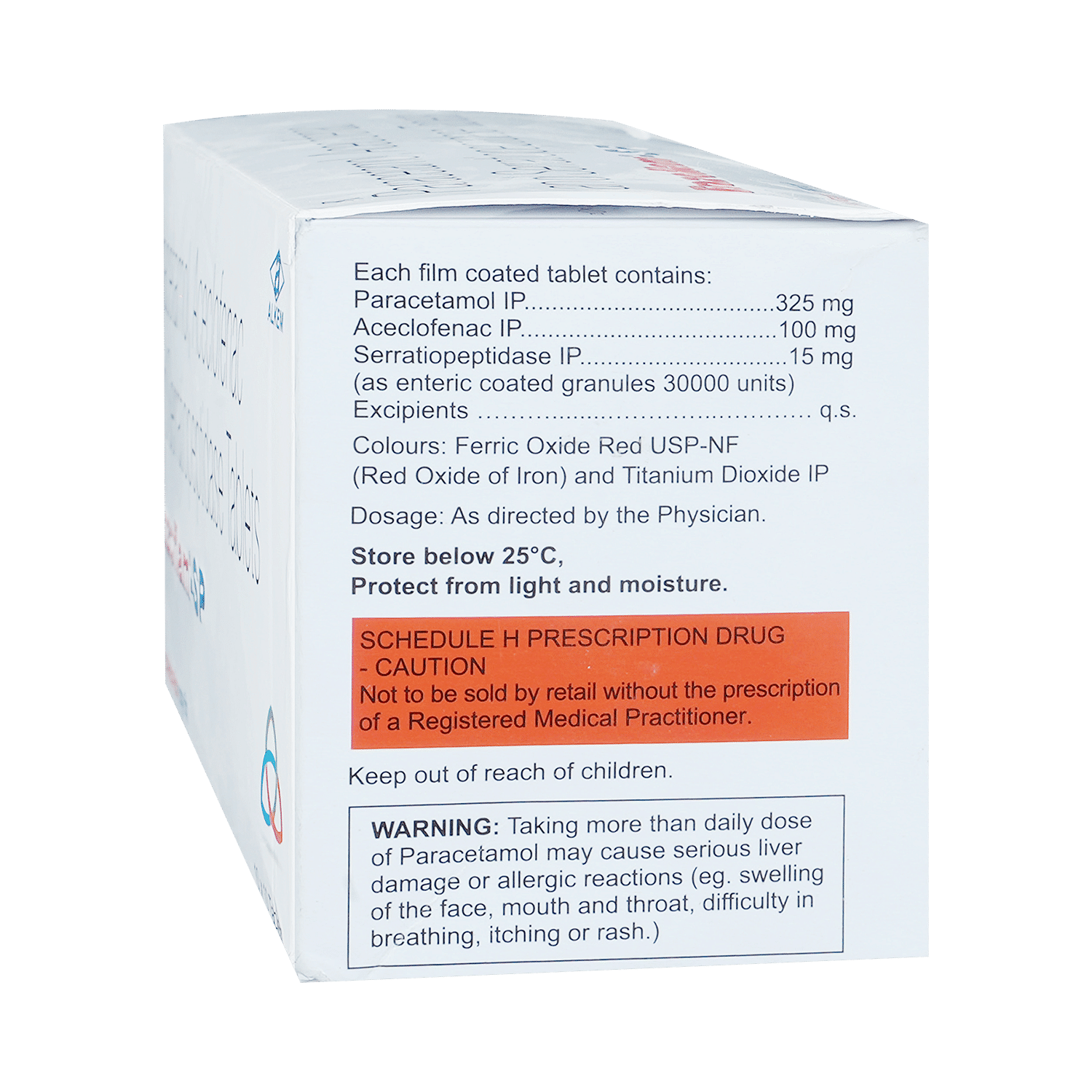
Enzoflam-SP Tablet
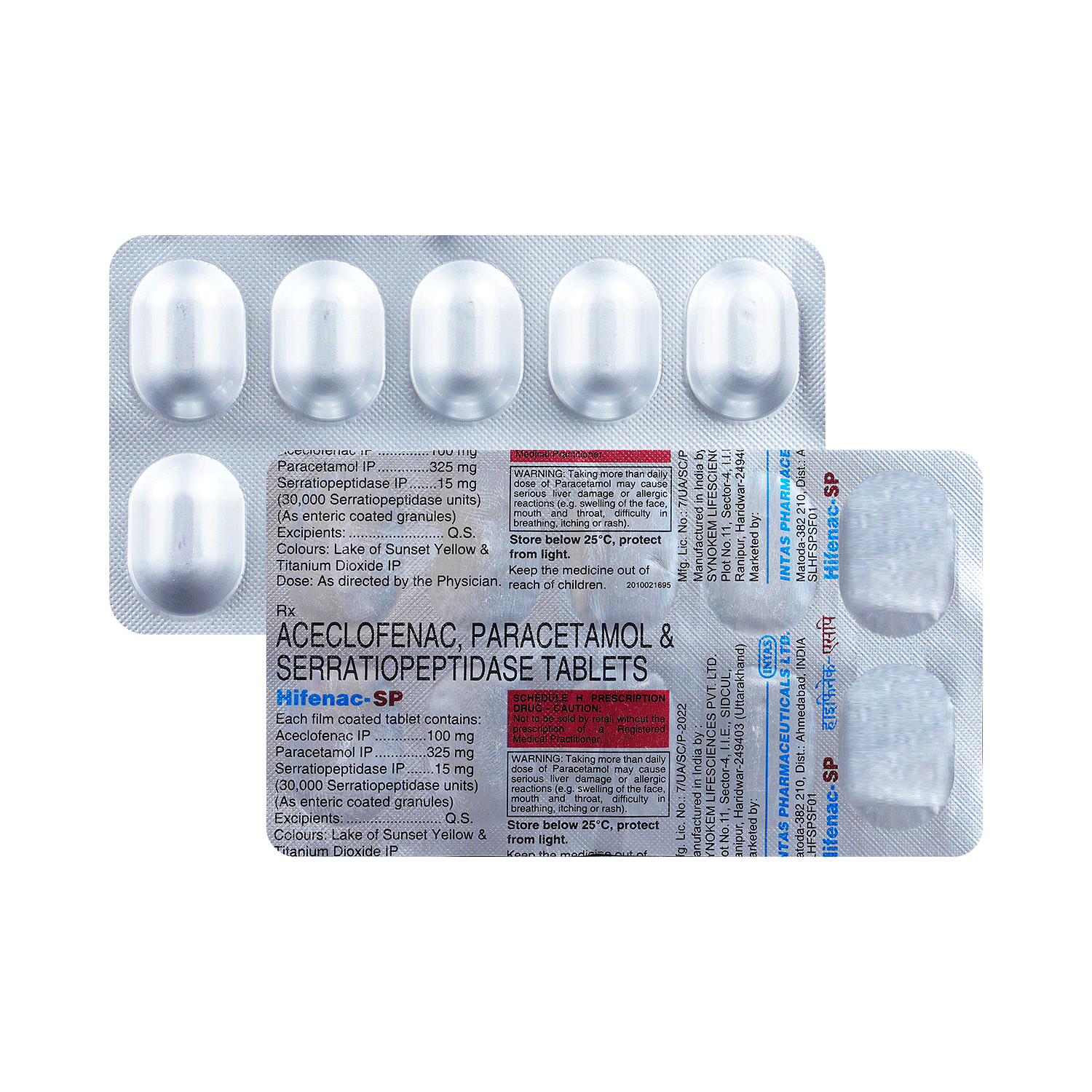
Hifenac-SP Tablet
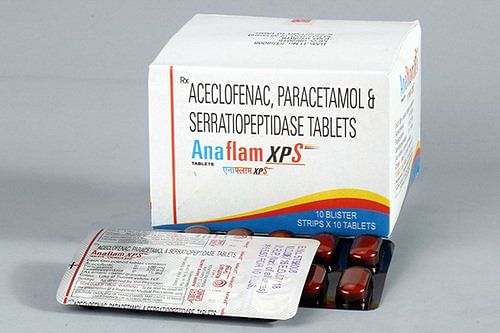
Anaflam Xps Tablet
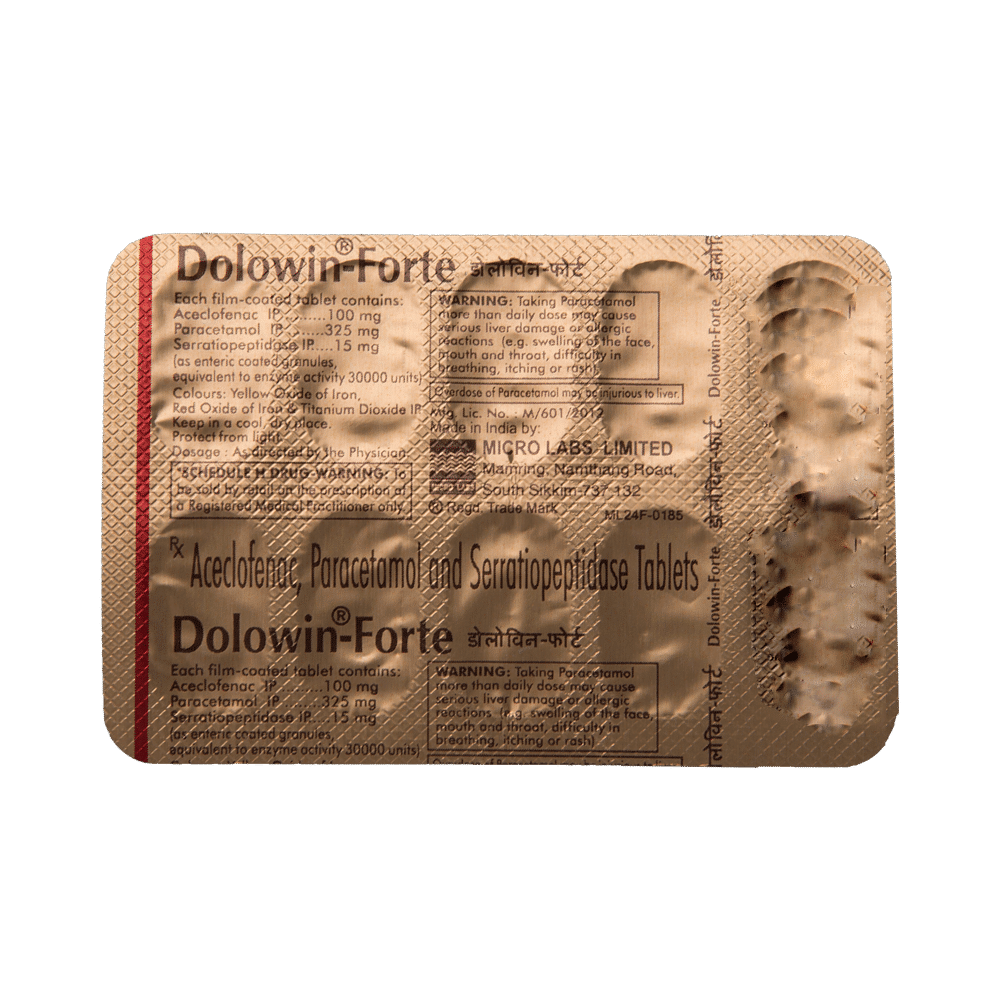
Dolowin-Forte Tablet

Muclonac SP 100mg/325mg/15mg Tablet
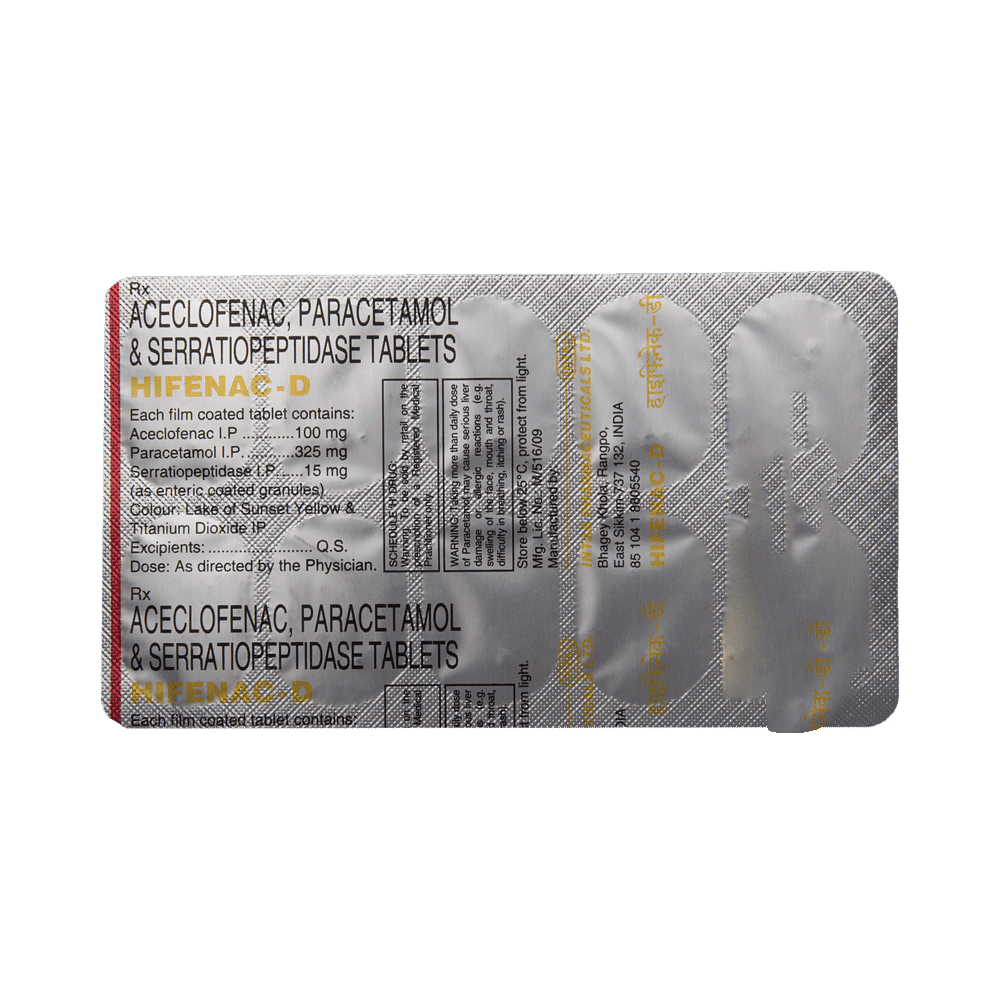
Hifenac-D Tablet
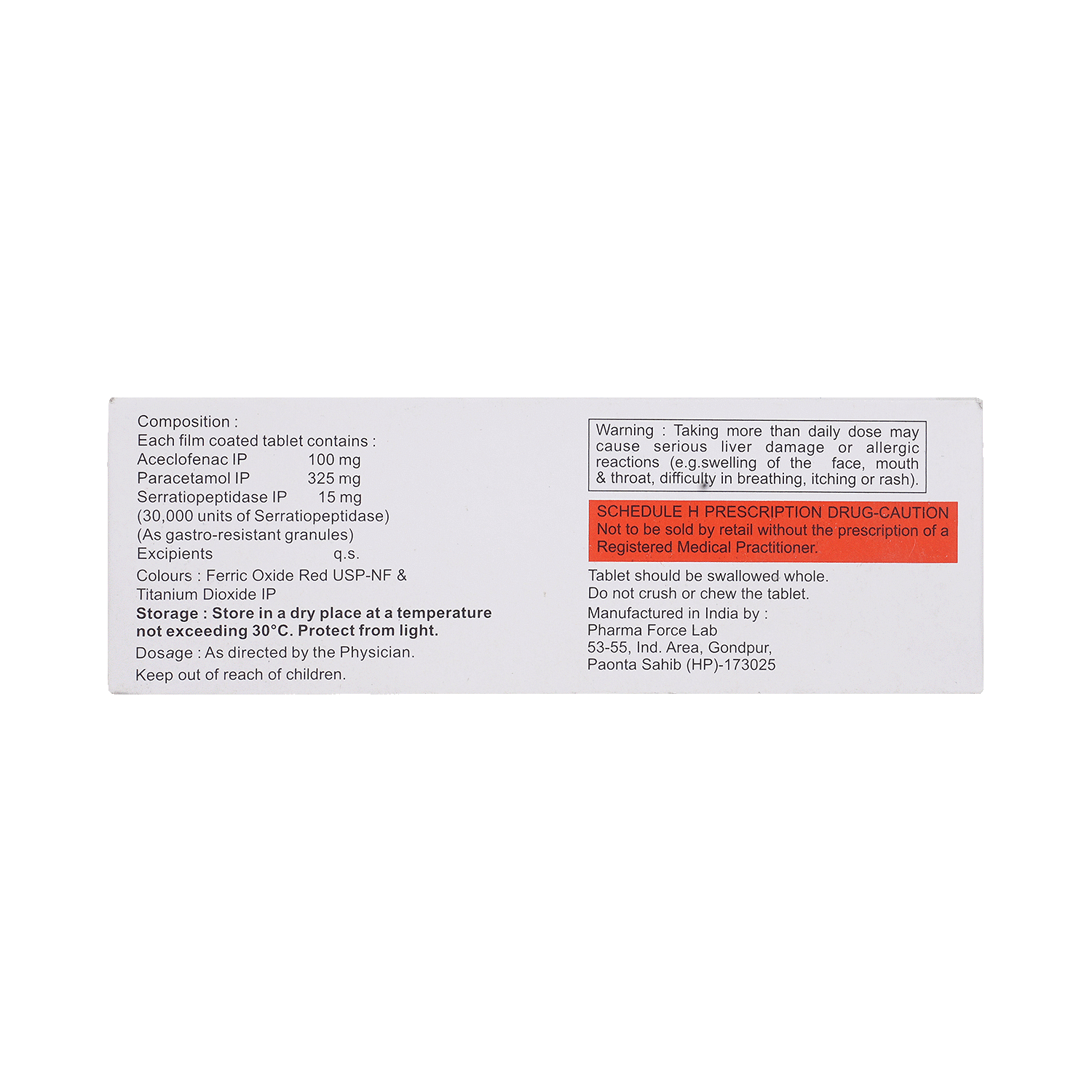
Dolokind-AA Tablet

Erinac SP 100mg/325mg/15mg Tablet
Frequently asked questions
What is Acerus-SP Tablet?
Acerus-SP Tablet contains aceclofenac, paracetamol, and serratiopeptidase. It's used to relieve pain and reduce inflammation.
Is it safe to take Acerus-SP Tablet?
Most patients can safely use this medication. However, some may experience side effects like nausea, vomiting, stomach pain, heartburn, and diarrhea. Seek immediate medical attention if these persist.
Can I stop taking Acerus-SP Tablet when my pain is relieved?
Acerus-SP Tablet is typically used for a short period, and you can discontinue it once your pain is controlled. However, always follow your doctor's instructions.
Can Acerus-SP Tablet cause nausea and vomiting?
Yes, this medication may induce nausea and vomiting in some individuals. Consuming this medicine with milk, food, or antacids might help. Avoid fatty or fried foods while taking it. If vomiting occurs, drink small frequent sips of water. Consult your doctor if vomiting continues or you experience signs of dehydration (dark-colored urine, low urination frequency). Do not take any other medications without speaking to your doctor.
Can Acerus-SP Tablet cause dizziness?
Yes, this medication may cause dizziness in some patients. If you experience dizziness or lightheadedness, rest and resume activities when you feel better.
Are there any specific contraindications associated with taking Acerus-SP Tablet?
People with known allergies to the medicine's components (including excipients) should avoid this medication. Those with active stomach ulcers or a history of stomach ulcers and bleeding are also advised against its use. Individuals with heart failure, high blood pressure, or pre-existing kidney or liver disease should exercise caution.
Can I take Acerus-SP Tablet with vitamin B-complex?
Yes, combining this medication with vitamin B-complex preparations may be beneficial as it can address both pain relief and potential vitamin deficiencies.
Can the use of Acerus-SP Tablet cause damage to kidneys?
Long-term use of this medicine might potentially lead to kidney damage. Prostaglandins, crucial for protecting the kidneys, are lowered by pain relievers, leading to potential long-term kidney issues.
Can I take a higher dose of Acerus-SP Tablet than recommended?
It's not advisable to exceed the recommended dosage. If your pain is severe or doesn't subside with standard doses, consult your doctor for further evaluation.
What are the instructions for storage and disposal of Acerus-SP Tablet?
Keep this medicine in its original container, tightly closed. Follow the storage instructions on the package or label. Do not flush unused medications down the toilet. Dispose responsibly to prevent access by pets, children, and others.


